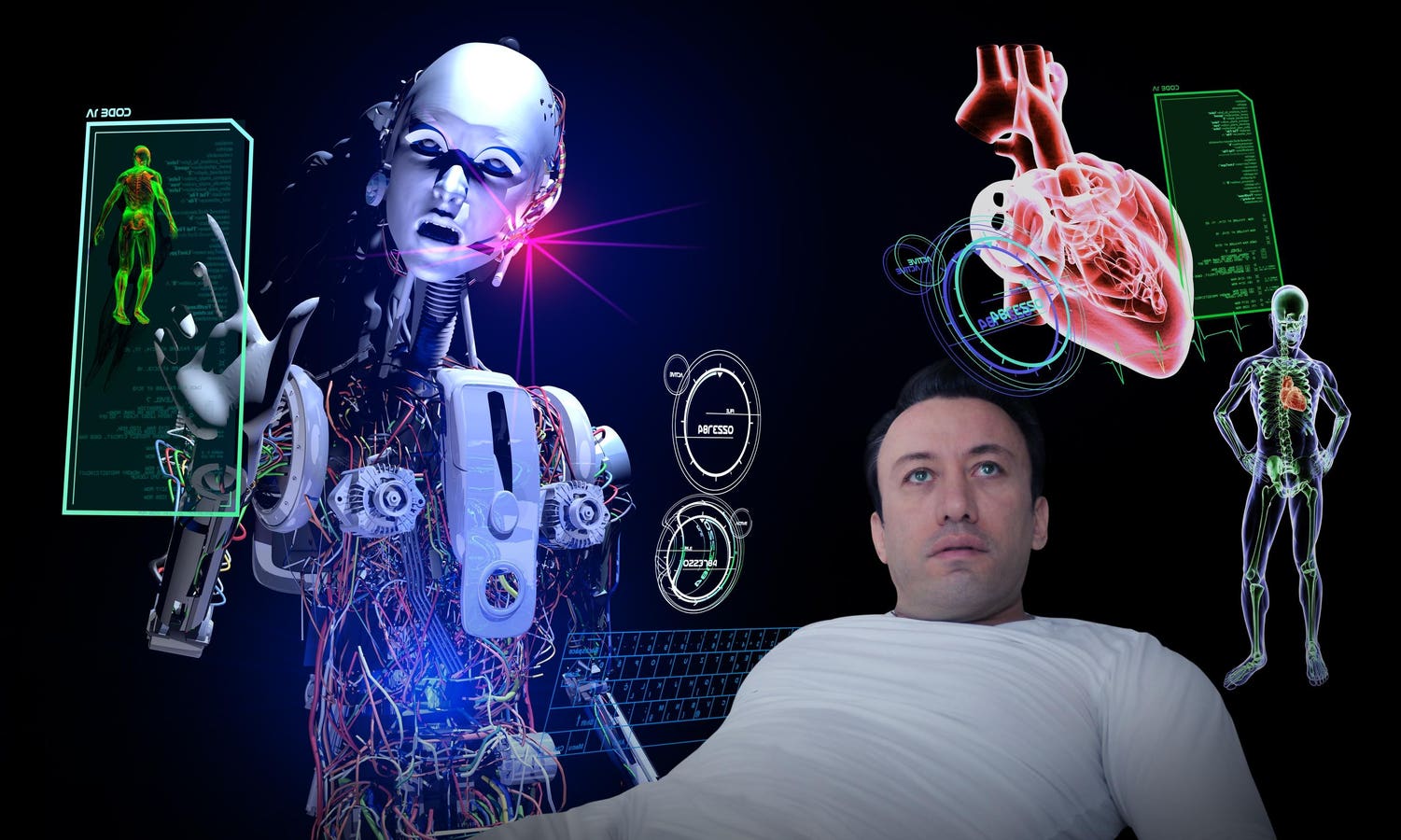
With all the talk about AI and whether it will cost or add jobs, and after researching and writing more than 40 articles about the subject, I have reached the following decision points:
1. AI, like other major inventions in history – including mass production, the PC, the internet, and social media – will create exponentially more jobs than it will cost.
2. We don’t yet know what many of those jobs will be, which makes readiness for the future more important than expertise for today.
3. We’ve had enough of generalities like “AI will create jobs” without being specific. To that end, let’s start with health care today, with other fields coming up in the near future.
Health Care Jobs Created By AI
Americans spend more money on health care – nearly 20% of our GDP and two to three times that of OECD countries – that job and career changes in health care are sea change. Such as:
Personalized Medicine and Treatment Optimization
Personalized medicine has been one of the most anticipated transformations of this century. It was hardly possible before AI, inevitable now. AI algorithms can analyze genetic data, patient histories, and other relevant information to develop personalized treatment plans. This approach improves treatment efficacy, minimizes adverse effects, and optimizes healthcare resources utilization. Expect lots of growth here.
Predictive Analytics and Early Disease Detection
If the pandemic taught us anything, it’s that reacting to new diseases is no longer enough. Predict and prevent is the new normal. That’s where AI comes in. Predictive analytics models will analyze huge datasets of patient and population information to identify patterns and risk factors for diseases. This enables early detection of diseases like diabetes and cardiovascular conditions, and even prevention of infectious diseases.
Remote Patient Monitoring and Telemedicine
Wearable devices and remote monitoring systems enable continuous tracking of patients’ health parameters such as heart rate, blood pressure, and glucose levels. This allows for instantaneous proactive intervention and remote consultations.
Virtual Health Assistants
Virtual assistants and chatbots provide patients with personalized health advice, medication reminders, and assistance in scheduling appointments. These tools enhance patient engagement, support self-management of chronic conditions, and alleviate the burden on healthcare providers, thereby playing an important role in cost containment.
Drug Discovery and Development
AI dramatically accelerates drug discovery processes by analyzing vast amounts of biological data to identify potentially successful drugs, predict their efficacy and improve them during their life cycles, and optimize their molecular structures. This has the potential to significantly reduce the time and cost associated with bringing new drugs to market, as well as making availability a non-issue.
Organ Chips
Imagine being able to eliminate animal and even human testing of drugs. Imagine being able to simulate time exposure to therapies or accelerate longitudinal studies. There’s no need to imagine this anymore. The innovation is in the organ chips.
Medical Imaging Analysis
AI algorithms can analyze medical images such as X-rays, MRIs, and CT scans to assist radiologists – actually, improve their readings – in detecting abnormalities and diagnosing diseases like cancer, fractures, and neurological conditions more accurately and efficiently.
Clinical Decision Support Systems
Clinical decision support systems analyze patient data, medical literature, best practices, and up-to-the-minute developments. AI will vastly improve these systems to provide healthcare professionals with evidence-based recommendations for diagnosis, and treatment planning. This improves clinical decision making by accessing more critical data, speeding up the analysis, and reducing the likelihood of medical errors.
Healthcare Operations and Workflow Optimization
While hospital operations can sometimes be a snag, predicting patient admission rates, managing bed occupancy, and streamlining resource allocation can be optimized by AI. Additionally, AI-powered robotic systems automate repetitive tasks such as inventory management (pharmacy, dining, housekeeping) thereby increasing operational efficiency and reducing costs.
As we see, AI will be far-reaching in health care, creating clinical, technical, operations, and research jobs.
